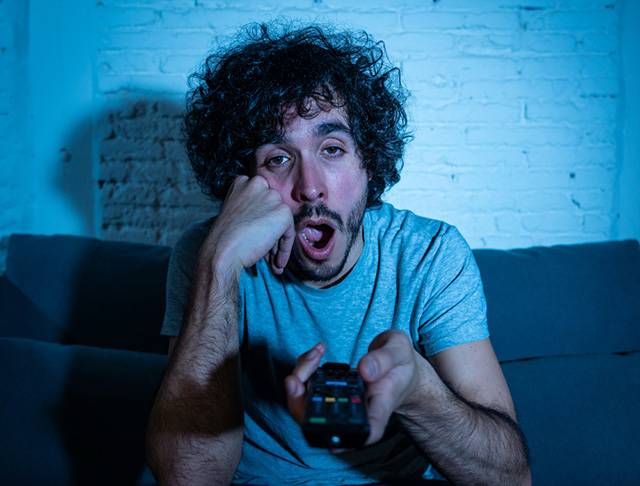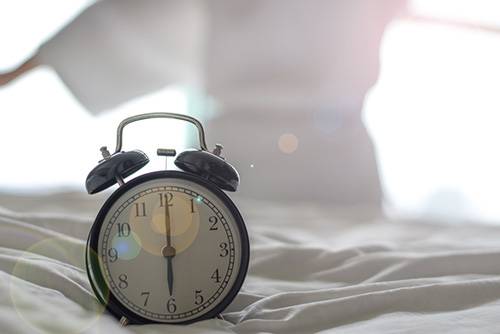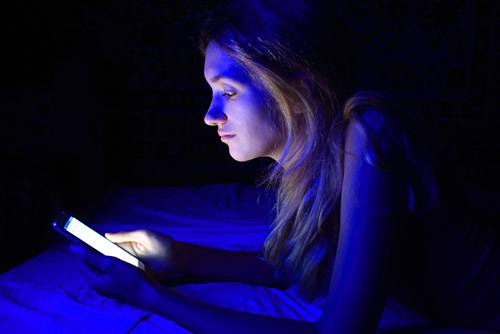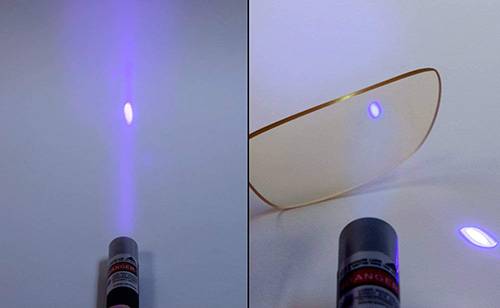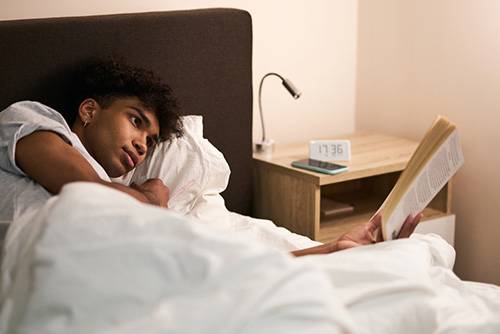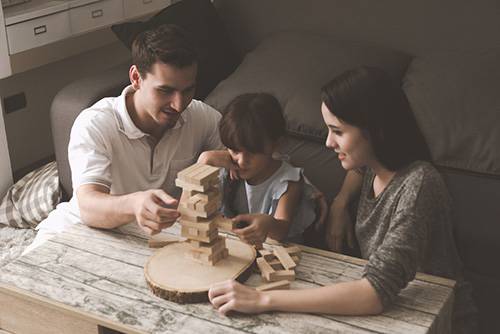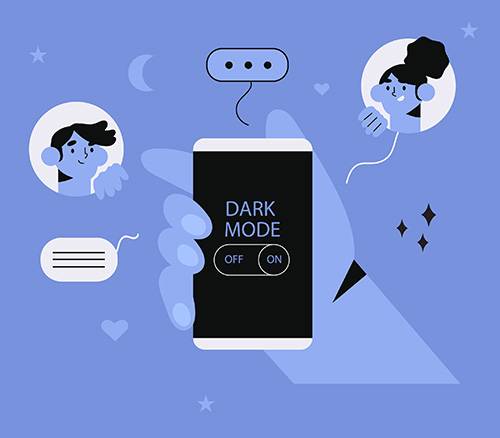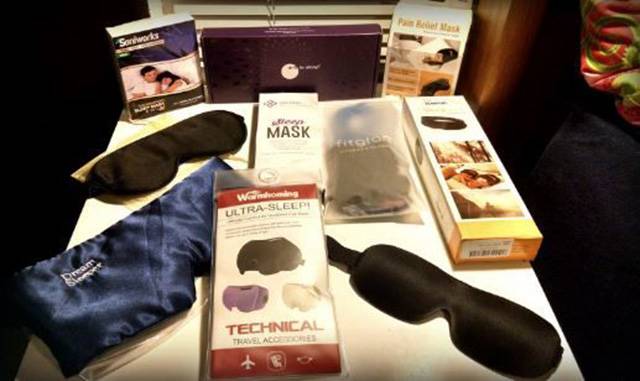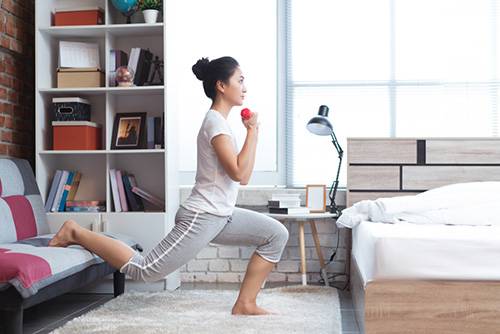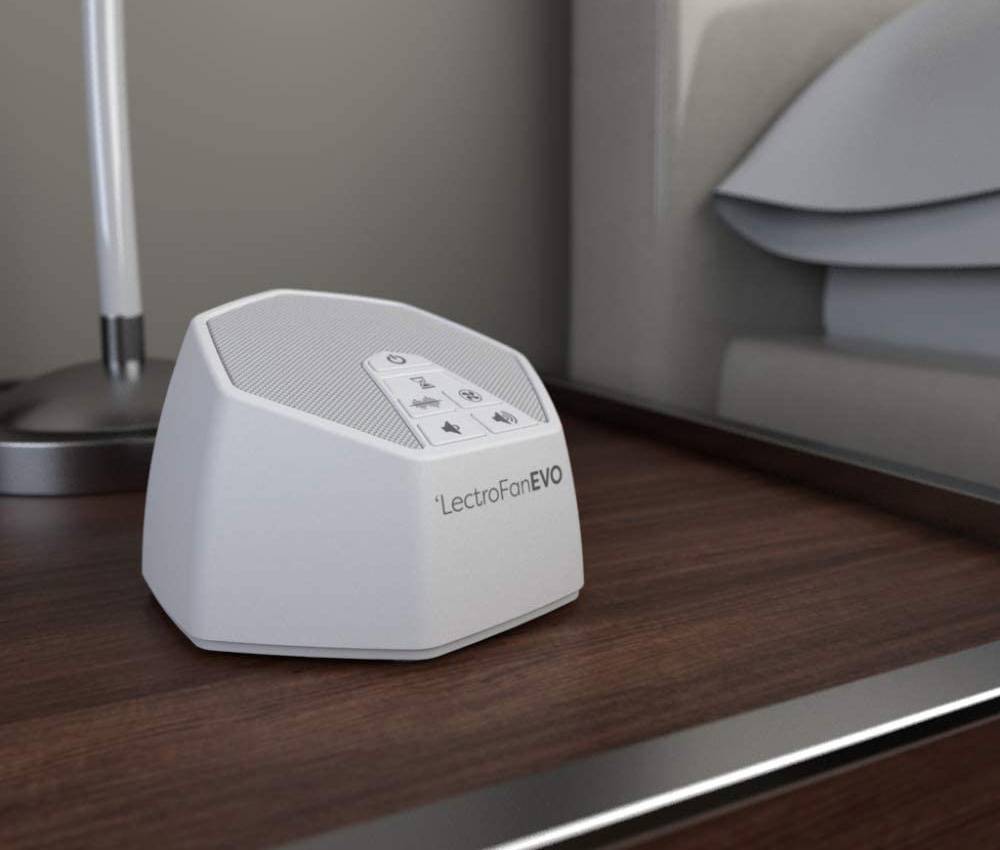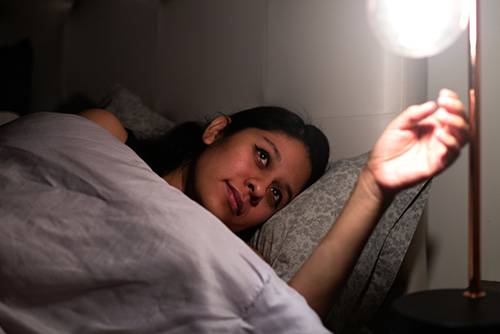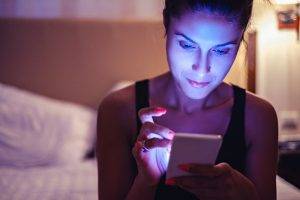
This type of light is known to inhibit one’s production of essential sleep hormones like melatonin, which is bad news for anyone who enjoys their quality electronics time each night. We receive a good deal of blue light exposure from cell phones, computers, televisions, and all those other electronic thingies we have at our constant disposal.
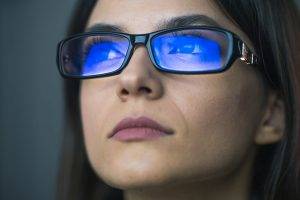
In this article, we’ll discuss the effects of blue light on sleep, how effective blue light glasses really are at preventing these effects, and some other methods you might use to get a better night’s sleep.
Let’s dive in.
Sleep and Blue Light: Here’s Some Context
There are two main factors involved in human sleep patterns:
- The circadian rhythm (a.k.a. the sleep-wake cycle)
- Sleep pressure
The circadian rhythm is a 24-hour biological cycle that regulates things in the body such as hormone production. This includes the hormone melatonin, which is essential for getting a good night’s sleep. In a well-functioning circadian rhythm, a person’s body will produce more melatonin when it’s dark and less when it’s light.
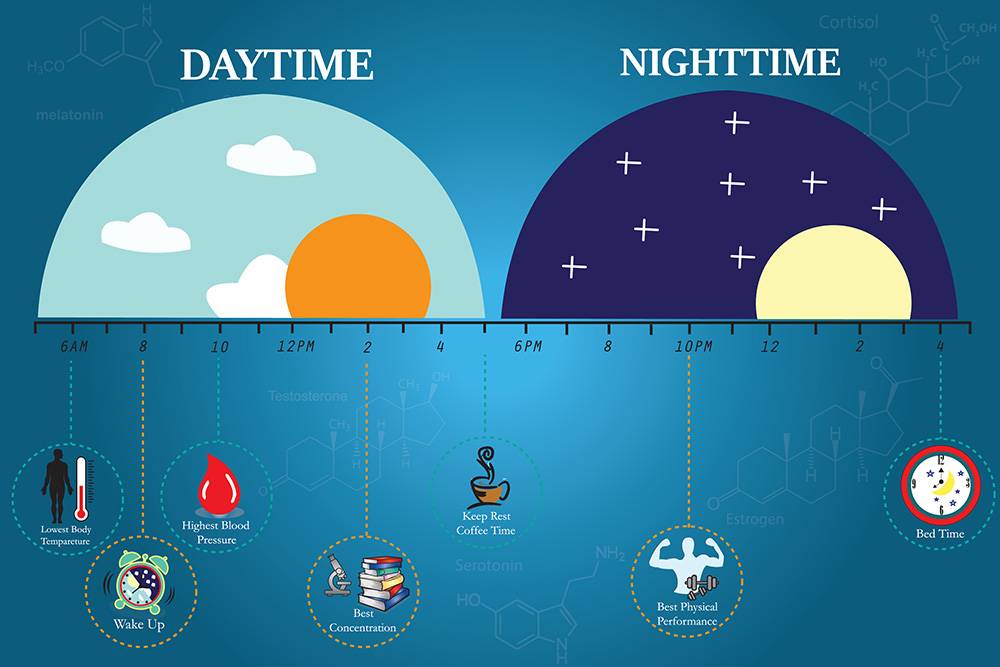
While the circadian rhythm helps keep us on a healthy and consistent sleep schedule, sleep pressure buildup makes sure we get some sleep even when our circadian rhythm is thrown off.
Enter Blue Light
The circadian rhythm largely depends on cues from light to know when to start producing certain hormones (like melatonin). While the sun is the most traditional source of daytime lighting, we also receive light “cues” from indoor lighting solutions, neon signs at night, and our electronic devices.
When we’re exposed to light, it tells our circadian rhythm that it’s still daytime and not yet time to produce melatonin. While all types of lighting do this, blue light is kind of a special case. This type of light has a short wavelength compared to other colors on the spectrum, and this shorter wavelength is known to greatly disrupt one’s melatonin production.
If you binge-watch The Walking Dead on Netflix before bed, scroll through social media right up until bedtime, or read steamy romance novels on your tablet late into the night, you’re getting a hearty dose of blue light that’s going to throw off your circadian rhythm.
So, what can you do about it?
Can Blue Light Glasses Help Sleep?
Blue light glasses are special glasses designed to counteract the effects of blue light. The idea is that filtering out some of the blue light we expose ourselves to will reduce its negative effects on our eyes* and circadian rhythms.
At the moment, there’s not a ton of research on the efficacy of blue light glasses in these regards. But the limited research that has been done has revealed a couple of things:
- Blue light glasses only filter out some of the blue light. This makes them somewhat effective, but you shouldn’t expect to receive 100% immunity to issues caused by blue light.
- It may be best to use blue light glasses only as a supplementary means of reducing your blue light exposure.
That said, if you feel like blue light glasses would benefit your evening routine and help you sleep better, they’re totally worth a try.
Other Things That May Help
As mentioned, blue light glasses work best when used in conjunction with other methods of blue light reduction and healthy lifestyle habits. Here are a few different things you can try to get a better night’s sleep—with or without blue light glasses.
Limited tech time
The most obvious tip is to simply reduce the amount of time you spend on your electronic devices, especially during the final couple of hours before bedtime. Doing so will lower the amount of blue light you’re exposed to and thus allow your body to produce more melatonin.
You may find it useful to find alternative activities to engage in before bed. For example, you could…
- …read a book (in paper form).
- …play board or card games with family.
- …take up an electronic-free hobby, such as crafting or painting.
- …put on some music and sip on a glass of wine.
Dark mode
If you aren’t about to give up your precious tech time completely, you could also consider using dark mode at night. This will reduce the amount of light produced by your cell phone, resulting in less inhibition of melatonin production. In addition, using dark mode can ease the strain on your eyes and elongate the life of your cell phone battery.
Sleep mask
In case you’re wondering if sleep masks are still trendy: They are. In fact, you can find sleep masks in a variety of materials (from smooth silk to cozy cotton) and designs (including “contoured” masks that cup your eyes and “weighted” masks that act like a weighted blanket—because your eyes deserve the best).
Wearing a sleep mask to bed can improve your sleep by blocking out light, which is especially useful if your partner enjoys reading on their phone late at night (remind them of the previous two rules, please) or if drive-by traffic keeps you up.
Early-morning exercise
Getting exercise during the day not only provides you with physical, mental, and emotional benefits upfront—it keeps on giving come night time by helping you get better rest and sleep. Studies have found that exercising in the morning or early afternoon tends to have the best results, especially if that exercise is done outdoors in the sunlight. There are several reasons for this:
- Exercising early on keeps you more awake, more alert, and feeling better throughout the day.
- It exposes you to the best form of light—natural light from the sun—which can help regulate your circadian rhythm.
- Morning exercise reduces blood pressure throughout the day.
- You’ll sleep deeper as your body repairs muscles you used earlier in the day.
That said, the only time you should avoid exercising is right before bed. Experts recommend exercising no later than 90 minutes before you hit the hay. This is because the endorphins released during exercise, combined with the increase in body temperature, can hinder sleep.
Calming music or white noise
Some people find that they fall asleep faster and sleep better when they listen to calming music or white noise before bed. If you find the silence disheartening, need to unwind before drifting off, or simply prefer having some background noise throughout the night, you should consider playing your favorite music at low volume or purchasing a white noise machine.
Consistent bedtime
Going to bed and waking up on a consistent schedule is a great way to adjust your circadian rhythm. By doing this, you’re getting your body used to sleeping/getting up at a certain time so it can know when to increase or decrease its production of hormones like melatonin.
Conclusion
While blue light glasses do reduce the impact of blue light on both one’s eyes and one’s melatonin production, they are not 100% effective and should be supplemented with other measures.
In this article, you learned about the circadian rhythm and the negative impact that excessive blue light exposure before bed can have on it. You also discovered a few additional methods and tips for falling asleep, staying asleep, and getting higher-quality sleep at night.
Do you still have any questions about blue light glasses or the sleep-wake cycle? Or maybe you’ve found success with a sleep method we didn’t cover. Feel free to drop us a comment and add to the discussion!
Photo credit: kanyanat wongsa/Shutterstock; Sam Wordley/Shutterstock;
tenenbaum/Shutterstock;/Shutterstock; Sjale/Shutterstock; Realstock/Shutterstock;
BaanTaksinStudio/Shutterstock; KatePilko/Shutterstock; TORWAISTUDIO/Shutterstock
